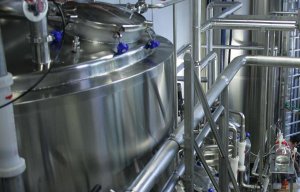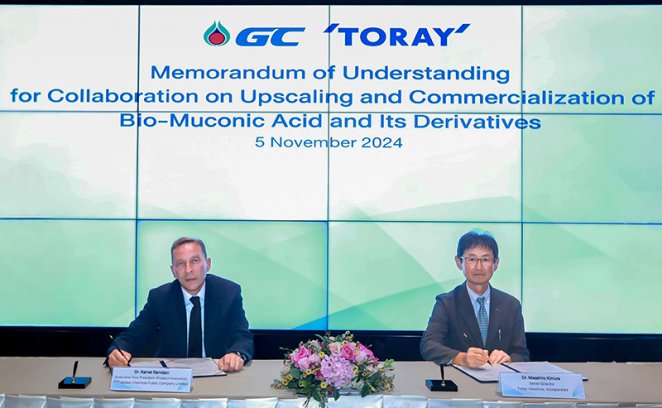
Genomatica to scale bio-nylon 50-fold with Aquafil
Partners exploring the establishment of a supply chain for bio-based adipic acid made from agricultural waste in Thailand.

18th November 2024
Innovation in Textiles
|
Japan & Thailand
Japan’s Toray Industries and major Thai petrochemicals producer PTT Global Chemical (GC) are jointly exploring the development of mass production technology for adipic acid made from non-edible biomass.
The two companies are evaluating the feasibility of mass production technology and commercialisation in Thailand and Japan. If the business is deemed viable, they aim to commercially manufacture several thousand metric tons of bio-based muconic and bio-based adipic acid annually by 2030.
In 2023 the two companies began jointly developing technology to produce these raw materials for nylon 6.6 from non-edible biomass-derived sugars made at Cellulosic Biomass Technology, a Thai company in which Toray has an 84% stake.
GC is employing proprietary fermentation technology to quickly convert non-edible sugars into high yields of muconic acid while Toray uses its hydrogenation process to produce high yields of high-purity bio-adipic acid from muconic acid. The bio-based adipic acid resulting from these combined processes can serve as a raw material for nylon 6.6 for resins and fibres similar to petroleum-derived nylon 6.6. In addition, the entire process does not generate nitrous oxide, a greenhouse gas by-product typically associated with chemical synthesis-based processes.
If all goes to plan Toray and GC will build a supply chain to manufacture tens of thousands of metric tons of bio-based adipic acid from agricultural waste in Thailand, which is rich in natural resources. They will use this acid to make eco-friendly nylon 6.6.

Business intelligence for the fibre, textiles and apparel industries: technologies, innovations, markets, investments, trade policy, sourcing, strategy...
Find out more